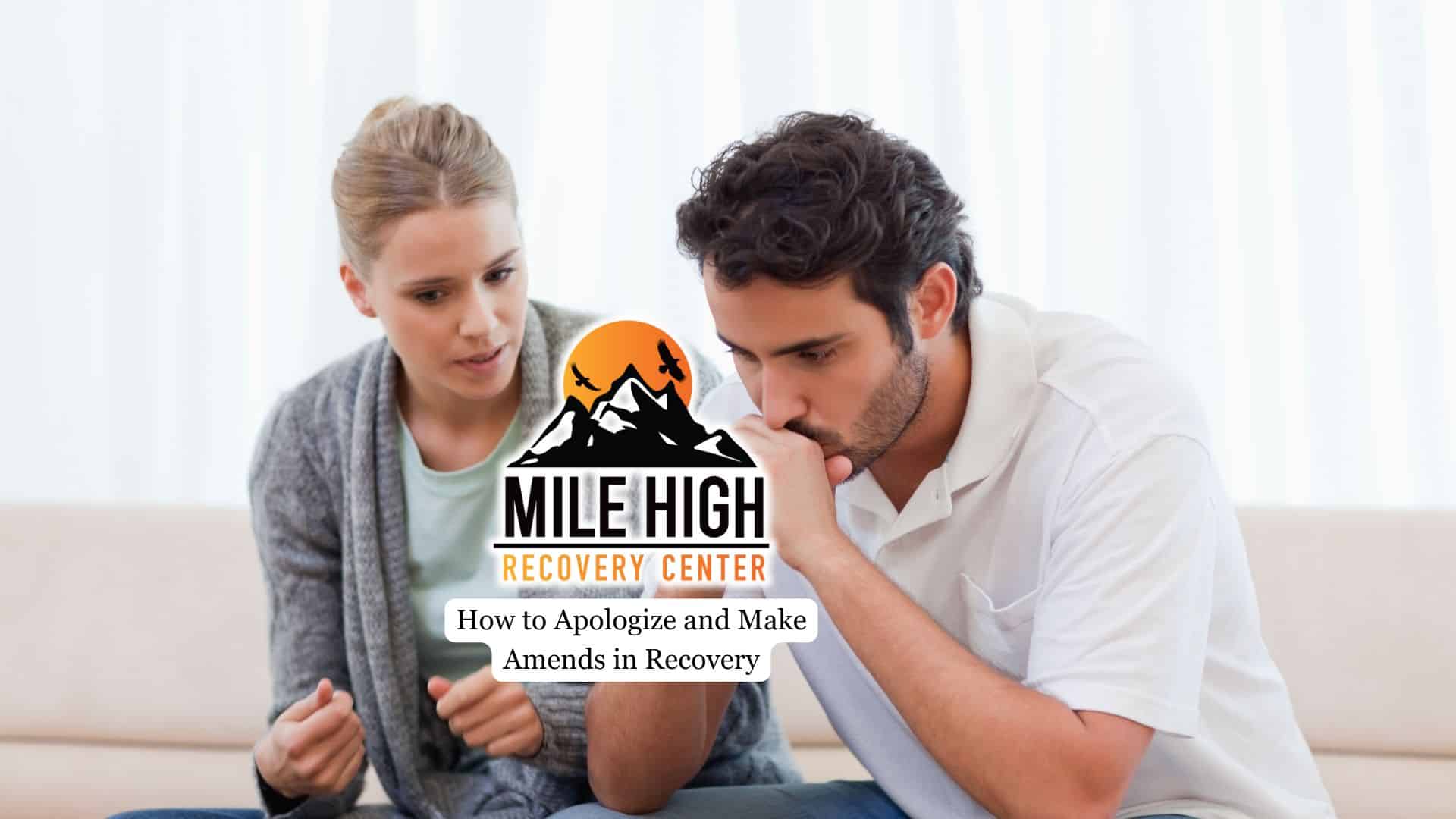Apologizing and making amends are essential components of addiction recovery. These actions help restore trust, repair damaged relationships, and promote emotional stability. While the process can be uncomfortable or emotionally taxing, approaching it with honesty and patience supports long-term sobriety and healthier interpersonal connections.
This article explains the importance of apologizing in recovery, outlines practical steps for making amends, discusses appropriate timing, and explores common challenges faced during the process.

Why Apologizing Is Crucial in Recovery
Addiction can significantly strain relationships through deception, broken promises, or behaviors that cause emotional or financial harm. Feelings of guilt, regret, and shame often surface in early recovery. Addressing these emotions constructively, rather than avoiding them, helps prevent relapse and fosters personal accountability. Acceptance-based therapies encourage individuals to acknowledge and embrace difficult emotions without judgment. This approach supports emotional healing and resilience, creating a stronger foundation for making sincere apologies.
A genuine apology demonstrates responsibility for one’s actions and a willingness to change. It also allows loved ones to feel heard and acknowledged, which is critical for rebuilding trust. This process supports self-awareness and contributes to emotional healing, both of which are fundamental to sustained sobriety.
Steps for Making a Genuine Apology in Recovery
Take Full Responsibility
Effective apologies begin with clear accountability. Avoid minimizing or explaining away your behavior. Instead, acknowledge specific actions and their impact. For example, saying, “I’m sorry for lying and breaking your trust,” communicates awareness and ownership more effectively than a vague statement such as, “I’m sorry if you were hurt.”
Taking responsibility aligns with key recovery principles, including those found in Step 9 of the 12-Step framework, which emphasizes making direct amends wherever possible. This process reinforces personal integrity and builds the foundation for healthier relationships.
Express Empathy and Understand Their Feelings
Empathy transforms an apology from a statement into a meaningful exchange. Recognizing how your behavior affected others promotes emotional connection and mutual understanding. Statements such as, “I understand why you’re upset,” validate the other person’s experience and demonstrate emotional maturity.
From a clinical perspective, empathy supports emotional regulation and interpersonal effectiveness, skills often disrupted by addiction. Developing these abilities helps individuals communicate more constructively.
Offer to Make Amends Where Possible
Apologies gain credibility when paired with action. Making amends may include repaying debts, re-establishing trust through consistent behavior, or addressing past harm in practical ways. Ask what can be done to make things right, but set realistic commitments that you can maintain.
Following through on amends is a key part of rebuilding credibility and demonstrating change. This step is not about earning forgiveness but about aligning words with behavior to promote healing for both parties.
Prepare for Varied Responses
Not everyone will respond to an apology the same way. Some may accept it immediately, while others may need time, space, or may choose not to reconcile. Respecting their response shows emotional maturity and acknowledges that healing is a gradual process.
Maintaining consistent behavior, such as honesty, reliability, and self-control, reinforces the sincerity of your apology over time, regardless of the other person’s reaction.

When Is the Right Time to Apologize?
Timing plays an important role in how an apology is received. It’s best to wait until you are emotionally stable, sober, and ready to take responsibility without defensiveness. Likewise, consider whether the other person is prepared to engage. Approaching someone too soon or from a place of guilt can be counterproductive.
In some cases, giving both parties time to process emotions allows for a more constructive conversation. Seeking guidance from a rehab counselor, sponsor, or motivational enhancement therapy service can also help determine the most appropriate time and approach for making an apology, especially when relationships have been deeply affected by addiction.
Writing an Effective Apology Letter
When a face-to-face apology is not feasible, a written letter can be an appropriate alternative. An effective apology letter should be concise, specific, and honest. It should acknowledge the behavior, express understanding of its impact, and communicate a commitment to positive change.
Avoid defensive explanations or excessive emotional appeals, as these can distract from the message. The goal is to convey responsibility and sincerity while allowing the recipient space to respond on their own terms.
Making Amends Beyond Apology
True amends extend beyond verbal expressions of regret. Demonstrating change through consistent behavior is what rebuilds trust over time. This may involve maintaining sobriety, attending therapy, or contributing positively to relationships and the community.
Engaging in family or group therapy can provide additional guidance for navigating complex dynamics and maintaining accountability. Consistent positive actions eventually reinforce that recovery is not just about abstaining from substances. It’s about adopting a healthier, more responsible way of living.
Final Thoughts from Mile High Recovery
Making sincere apologies and amends is a meaningful part of the recovery journey. It fosters accountability, emotional healing, and the rebuilding of trust, key elements for maintaining long-term sobriety and restoring personal integrity. Though the process takes time and patience, it helps individuals strengthen their relationships and deepen their commitment to change.
At Mile High Recovery, our evidence-based rehab programs in Denver, CO, including MET and family therapy, are designed to guide individuals and families through every step of the way. We provide structured, compassionate support that empowers loved ones to take positive action. Through personalized intervention planning, family education, and ongoing guidance, we help create a foundation for healing and lasting transformation.







